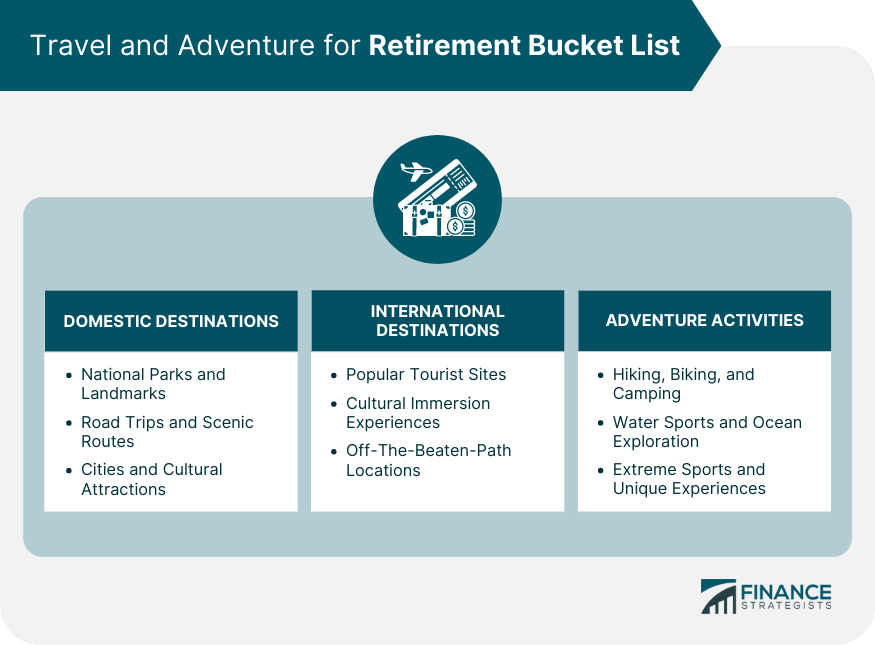
The journey towards retirement is often envisioned as a serene path leading to financial freedom and leisurely days. However, this crucial transition period is also fraught with potential pitfalls that can derail even the most carefully laid plans. Many individuals, despite years of hard work and diligent saving, inadvertently make significant financial mistakes that jeopardize their golden years. It’s a stark reality that while specific investment strategies may vary from person to person, there are universal errors that savvy savers must learn to avoid.
Understanding these common missteps isn’t about fostering anxiety, but rather empowering you with the knowledge to navigate your retirement planning with greater confidence and clarity. The goal is to build a nest egg that truly supports the lifestyle you desire, not one that leaves you second-guessing your choices later on. From impulsive decisions that drain resources to overlooking critical long-term considerations, these mistakes can transform a dream retirement into an unexpected struggle.
This comprehensive guide will spotlight 15 of the worst financial mistakes people make before retirement, offering practical, actionable insights rooted in real-world scenarios and expert advice. By identifying these red flags early and implementing strategic countermeasures, you can significantly enhance your chances of achieving a secure, comfortable, and truly fulfilling retirement. Let’s dive into the first half of these critical errors, equipping you with the foresight needed to protect your future.
1. **Relocating on a Whim**One of the most romanticized notions of retirement is packing up and moving to a dream destination, perhaps a warmer climate or a quiet beachside town. The lure of Florida, Arizona, or the Carolinas often calls out to those nearing their golden years, promising endless rounds of golf and tranquil walks on the beach. While such visions are appealing, making a permanent move on a whim without proper due diligence can quickly turn a dream into a nightmare, as many retirees have discovered.
The pace of life in a new locale, the absence of familiar faces, and the reality that even enjoyable activities can grow tiresome quickly are common reasons for regret. Before committing to a new home, it’s highly advisable to ‘test the waters.’ Spend extended vacation time in your prospective destination, immersing yourself in the local culture, meeting people, and getting a genuine feel for the lifestyle. This is even more crucial when considering retiring abroad, where new languages, laws, and customs can present overwhelming challenges.
Beyond lifestyle considerations, there are practical financial implications to weigh. Popular retirement areas may face longer-term challenges that could hit your wallet, such as rising costs. Moreover, understanding potential environmental risks, like flood zones, is paramount before buying a new home. Flood insurance can be prohibitively expensive or even unavailable. A wise strategy is to consider renting for a year before buying, as a couple in Savannah, Georgia, did. Their experience revealed the Deep South didn’t suit their temperament, leading them to become ‘halfback retirees’ – people who head to the Deep South, find they don’t like it, and move halfway back toward their former home up north. This cautious approach can save significant emotional and financial distress.
Read more about: Retirement Planning Perils: 14 Common (and Costly) Mistakes Every Pre-Retiree Needs to Avoid

2. **Falling for Too-Good-To-Be-True Offers**The path to a secure retirement is paved with hard work, careful planning, and consistent wealth-building over decades. There are simply no shortcuts. Yet, a distressing number of Americans fall victim to ‘get-rich-quick’ schemes and other scams annually, losing hundreds of millions of dollars, as reported by the FTC. Elder fraud is a rampant issue, with scammers constantly targeting retirees, attempting to pry away their hard-earned savings. The proliferation of identity theft, particularly credit card fraud, further underscores this vulnerability, with cases and projected losses reaching alarming levels.
The statistics are sobering: identity theft cases are on the rise, and experts predict credit card fraud could reach $43 billion by 2026. Every 14 seconds, someone in the U.S. falls victim to identity theft, and 150 million Americans will be victims of credit card fraud this year. These figures highlight the critical importance of vigilance, especially for those in or approaching retirement who are often targeted due to their accumulated assets. Scammers employ various tactics, from deceptive phone calls requesting donations to seemingly lucrative investment opportunities.
Recognizing the tell-tale signs of a scam is your first line of defense. Be extremely wary of offers guaranteeing spectacular profits in a short timeframe without risk. Requests to wire money or pay a fee to receive a ‘prize,’ or unnecessary demands for sensitive financial information like bank account numbers, credit card details, or Social Security numbers, are immediate red flags. Furthermore, anyone pressuring you for an immediate decision or discouraging you from seeking advice from an impartial third party should be avoided. The FTC advises running company or product names through a search engine with terms like ‘review,’ ‘complaint,’ or ‘scam’ and checking with your local consumer protection office or your state attorney general to see if it has fielded any complaints. Filing a complaint with the FTC is also crucial to help protect others.
Read more about: Retirement Planning Perils: 14 Common (and Costly) Mistakes Every Pre-Retiree Needs to Avoid

3. **Planning to Work Indefinitely**Many baby boomers approach retirement with the intention of continuing to work beyond age 65, whether out of desire, necessity, or a strategy to maximize Social Security benefits. While phasing into retirement slowly by working part-time or flexible hours is a growing trend, relying solely on the ability to work indefinitely can be a significant financial mistake. This plan, despite its apparent practicality, has a substantial risk of backfiring due to unforeseen circumstances.
The reality is that you could be forced into early retirement for a multitude of reasons beyond your control. Health-related issues—either your own or those of a loved one—are major factors that can suddenly necessitate an end to employment. Employer-related issues, such as downsizing, layoffs, or buyouts, also frequently impact older workers. Additionally, failing to keep skills up to date is another reason older workers struggle to get hired, further complicating the plan to work indefinitely.
Given these unpredictable elements, the actionable advice is to assume the worst, and save early and often. While almost four in 10 workers expect to retire at age 70-plus, and 23% do not plan to retire at all, citing financial and healthy-aging reasons, prudence dictates having a robust savings cushion. Preparing for the possibility that your working years might end sooner than planned ensures that you are not caught off guard, providing the financial resilience needed to navigate an unexpected early exit from the workforce.
Read more about: Your Essential Guide: 15 Must-Keep Documents After Buying a House for Long-Term Peace of Mind

4. **Putting Off Saving for Retirement**One of the most fundamental yet persistent financial mistakes is delaying retirement savings. A recent Northwestern Mutual study in 2025 revealed that a concerning 25% of Americans who have retirement savings say they have one year or less of their current income saved for retirement. For Gen X’ers, many of whom are approaching retirement, 52% have three times or less of their current annual income saved. The fundamental truth is that while many people recognize the importance of saving, they often vastly underestimate the actual amount needed for a comfortable retirement.
The habit of aggressively saving often doesn’t kick in until people reach their 40s or 50s. While it’s still possible to reach retirement goals at this stage, it demands swift action and extreme discipline, as Ajay Kaisth, a certified financial planner with KAI Advisors, emphasizes. The power of compounding interest means that starting early makes a monumental difference. For instance, to build a $1 million nest egg by age 65, according to Dutch Point Credit Union, assuming an annual interest rate of 8%, annual inflation rate of 2%, and $0 in prior savings, starting at 25 requires $300 a month. Waiting until 45 dramatically increases that to $1,700 per month, and by 50, it jumps to $3,000 monthly.
Fortunately, Uncle Sam provides incentives for those who start later. Once you turn 50, catch-up contributions become available, allowing older savers to contribute an additional $7,500 to a 401(k) on top of the standard $23,500 in 2025. For people aged 60 to 63, this catch-up limit can be as high as $11,250, which is either $10,000 or 150% of the regular catch-up limit, whichever is greater. IRAs also offer a $1,000 catch-up amount on top of the standard $7,000, bringing the total to $8,000. These provisions can help mitigate the impact of delayed savings, but they underscore the urgent need to prioritize and maximize contributions as soon as possible, rather than relying on the hope that things will ‘just fall into place’ later.
Read more about: Achieving Mortgage Freedom: A Definitive Guide to Paying Off Your Home 10 Years Early

5. **Claiming Social Security Too Early**While you become eligible to start taking Social Security retirement benefits at age 62, doing so prematurely can be a costly mistake that significantly reduces your lifetime income. Most financial planners strongly recommend delaying benefits at least until your full retirement age (FRA), which is 67 for anyone born after 1959. For an even greater financial advantage, waiting until age 70 is often the optimal strategy, provided you can afford to do so without undue financial strain.
The impact of claiming early is substantial. Let’s say your full retirement age is 67. If you claim Social Security at 62, your monthly check will be reduced by 30% for the rest of your life. Conversely, holding off provides a compelling incentive: you’ll get an 8% boost in benefits each year between ages 67 and 70 thanks to delayed retirement credits. It’s important to note that no additional retirement credits accrue after you turn 70, making that the effective maximum age for delaying benefits.
Different claiming strategies exist for couples, widows, and divorced spouses, highlighting the complexity and the benefit of professional consultation. Natalie Colley, a financial analyst at Francis Financial, succinctly puts it: “If you can live off your portfolio for a few years to delay claiming, do so. Where else will you get guaranteed returns of 8% from the market?” Alternatively, if delaying is a challenge, staying on the job longer, if feasible, or exploring a side gig can help bridge the financial gap, allowing you to maximize your Social Security benefits, which form a crucial component of most retirement incomes. If you begin payments before you actually need them, you’ll be locking yourself into a check worth less than you could have earned.
Read more about: Red Carpet Unfiltered: Power Struggles, PR Scuffles, and the Industry’s Unseen Workforce

6. **Borrowing from Your 401(k)**The idea of taking a loan from your 401(k) retirement savings account can seem appealing. After all, it’s your money. As long as your plan sponsor permits borrowing, you’ll usually have five years to pay it back with interest. However, short of an emergency, tapping into your 401(k) is widely considered one of the worst financial mistakes you can make, potentially jeopardizing your retirement security. It sets off a cascade of negative financial consequences that are often underestimated.
Meghan Murphy, a vice president at Fidelity Investments, points out that individuals are highly likely to reduce or suspend new contributions to their 401(k) while repaying a loan. This means you’re short-changing your retirement account for months or even years and sacrificing employer matches—which is essentially ‘free money.’ Furthermore, you lose out on the potential investment growth that those missed contributions and the borrowed cash could have generated. Murphy advises exploring all other borrowing options first, emphasizing the importance of an emergency fund or even a Health Savings Account (HSA) for medical emergencies. She asks, “is there anywhere else you might be able to borrow from?”
Another increasingly popular alternative, according to Murphy, involves drawing money from employer stock plan options, which often come without the same penalties or paycheck repayment requirements. The payback terms for 401(k) loans also pose significant risks. If you leave your employer before the loan is fully repaid, you are typically obligated to pay it back in full within a very short window—usually 60 to 90 days. Failure to do so transforms the loan into a taxable distribution, and if you’re under 59-1/2, a 10% tax penalty is applied on top of income taxes.
Moreover, you end up paying interest with after-tax dollars, only to be taxed on those funds again when retirement rolls around, essentially double-taxing your money. Exploring alternatives like student loans for college tuition or HELOCs for home repairs (though that comes with considerable risks, too) is always preferable to undermining your essential retirement fund.
Read more about: 12 Common Mistakes First-Time Homebuyers Make (And How to Master Your Homeownership Journey)

7. **Decluttering to the Extreme**As individuals approach retirement, or even well into it, the desire to declutter and simplify often grows strong. The idea of making things easier for heirs down the road, by getting rid of accumulated ‘stuff,’ is commendable. However, this process can become a financial mistake if not approached with caution, as certain items, even seemingly inconsequential ones, can hold significant legal or financial importance. Hasty disposal without proper review can lead to unforeseen complications.
While getting rid of genuine junk is always a good idea, retirees must be careful about what they discard. Beyond sentimental value, specific records are legally required to be retained for years, even after retirement. Professionals such as doctors, dentists, lawyers, and accountants, for instance, can be required by law to retain records for years after retirement. For tax purposes, while the IRS generally has a three-year audit window, it’s wise to hold onto actual tax returns indefinitely. Moreover, records pertaining to the purchase and capital improvement of your home, purchases of stocks and funds in taxable investment accounts, and contributions to retirement accounts (in particular nondeductible IRA contributions reported on IRS Form 8606) are crucial.
These specific records are vital for determining the correct tax basis on assets, preventing you or your heirs from paying more in taxes than legitimately owed. Without them, proving your original investment or contribution amounts can be challenging, leading to higher tax liabilities. Furthermore, some old things in your home might unexpectedly be worth a fortune, making a thorough, informed review essential. Consulting with a lawyer or tax adviser, as the author’s father wisely did with his business bookkeeping records, before tossing out anything of potential legal or financial significance, is a prudent step to avoid inadvertently creating headaches or financial losses for yourself or your beneficiaries.
Navigating the complexities of pre-retirement finances requires a keen eye not just for saving, but also for avoiding common traps that can jeopardize your golden years. After exploring the initial pitfalls, our journey continues into further critical missteps that, if left unaddressed, can profoundly impact your post-work lifestyle. These remaining errors often stem from well-intentioned but ill-advised decisions, or simply a lack of comprehensive planning, all of which can be detrimental to the secure and fulfilling retirement you envision.
Read more about: Wirecutter’s Definitive Guide: 13 Simple Ways to Keep Your Tesla Interior Spotless and Maintain Its Value

8. **Putting Your Kids First**Every parent dreams of providing the best for their children, whether it’s a top-tier education or a memorable wedding day. This deep-seated desire to help can, however, lead to one of the most significant financial missteps before retirement: sacrificing your own financial security for your kids’ expenses. While opening your wallet for a child’s private tuition or a lavish wedding comes from a place of love, it can seriously deplete a nest egg that is meant to last you decades.
Financial experts consistently advise against borrowing from your retirement fund to cover these costs. Instead, a host of other avenues exist to help fund a child’s education without raiding your 401(k) plan. These include exploring 529 plans, diligently searching for scholarships and grants, considering student loans, and opting for less expensive in-state schools. A smart strategy often overlooked is for parents and kids to consider community college for two years, ensuring credits transfer, before moving to a four-year institution.
The harsh reality is that if you aren’t prudent now, the financial strain on your own retirement could be immense. No one plans to face financial hardship in their later years, yet it can become a stark reality for many reasons, with insufficient savings being a primary culprit. In an unfortunate turn of events, a lack of personal financial foresight could even lead to you being the one moving into your child’s basement later, creating a burden you worked your entire life to avoid.
Read more about: Your Ultimate Blueprint: 14 Killer TikTok Hacks to Grow Your First 1000 Followers!

9. **Buying Into a Timeshare**The allure of a timeshare during retirement is understandable; the promise of frequent visits to a favorite vacation spot, freed from the daily grind, sounds idyllic. The idea of swapping for slots at other destinations within a network further enhances the appeal, painting a picture of endless, flexible getaways. Yet, this seemingly great deal can quickly turn into a significant financial regret for buyers who fail to grasp its full implications.
Beyond the initial thousands paid upfront, timeshares come with accumulating maintenance fees that can be a constant drain on your retirement budget. Add to that the high travel costs often associated with reaching popular vacation hotspots like Hawaii, Mexico, or the Bahamas, and the overall expense can skyrocket. Many discover that the dream turns sour, leading to buyer’s remorse, only to face the harsh truth that selling a timeshare is incredibly difficult.
The real estate market is often oversaturated with used timeshares, making it challenging to get a desirable price—if you can sell it at all. Even when a potential buyer emerges, the timeshare market is unfortunately rife with scammers targeting sellers. Should you find yourself regretting a timeshare purchase, experts recommend first contacting your timeshare management company about resale options. If that proves fruitless, reputable online platforms like RedWeek.com and Tug2.net are good places to list for sale or rent.
Hiring a reputable broker, found through organizations like the Licensed Timeshare Resale Brokers Association, is another avenue. As a last resort, donating your timeshare to charity for a tax write-off can be an option, but always consult with your tax adviser first. Taking these proactive steps can help mitigate the financial headache a timeshare might otherwise become, allowing you to salvage some value from a difficult situation.
Read more about: Your Comprehensive Guide: Unpacking the $50,000 New Car Price Tag and Its Real Monthly Cost for Consumers

10. **Avoiding the Stock Market**For many, the stock market appears to be a realm of volatility and risk, leading them to shy away from it, especially as retirement nears. This aversion, however, is one of the biggest mistakes investors can make when attempting to secure their retirement savings. While the market indeed experiences its share of ups and downs, historical data reveals that stocks have yielded an average return of approximately 10% per year since 1926. This performance far outstrips what can typically be achieved through bonds, CD rates, traditional bank accounts, or, certainly, stuffing cash under a mattress.
Elizabeth Muldowney, a financial adviser with Savant Capital Management, aptly articulates the hidden danger: “Conventional wisdom may indicate the stock market is ‘risky’ and therefore should be avoided if your goal is to keep your money safe. However, this comes at the expense of low returns and, in fact, you have not eliminated your risk by avoiding the stock market, but rather shifted your risk to the possibility of your money not keeping up with inflation.” This crucial insight highlights that playing it too safe can ironically be the riskiest move of all, as inflation erodes the purchasing power of static savings.
To navigate the market effectively without taking on undue individual stock risk, low-cost mutual funds and exchange-traded funds (ETFs) are highly favored. These vehicles offer an affordable and diversified way to gain exposure to hundreds or even thousands of companies, bypassing the need to buy individual stocks. Furthermore, even once you reach retirement age, the counsel from Fidelity Investments’ Meghan Murphy is clear: do not “retire” your stock portfolio. Your nest egg needs to continue growing to finance a retirement that could span 30 years or more. While maintaining some stock exposure is vital, it’s also important to gradually adjust your portfolio to ratchet down overall risk as you age, striking a prudent balance between growth and preservation.
Read more about: 11 Loafer Styles Women Over 50 Need Now to Elevate Every Office Look

11. **Ignoring Long-Term Care**It’s a common and comforting belief that we will all remain in peak physical and mental health throughout our retirement years. While a healthy lifestyle, including good diet, plenty of exercise, and regular check-ups, certainly helps, the reality is that time inevitably takes its toll. Even the hardiest retirees can face illness, and as you progress through your 70s, 80s, and 90s, the need for long-term care becomes a significant possibility, if not a certainty.
When the moment arrives that you or a loved one requires long-term care, the costs can be nothing short of shocking. According to A Place For Mom’s 2025 data, assisted living averages $5,190 per month, memory care reaches $6,200 per month, and independent living costs $3,145 per month. Even in-home care is a hefty $30 per hour for just 20 hours per week. These figures demonstrate how quickly even a substantial retirement nest egg can be depleted, and crucially, Medicare does not cover the majority of these long-term care expenses.
While the costs are daunting, there are options for funding long-term care, though they too come with a price. If your financial situation allows for it, considering long-term care insurance can be a wise move, covering some, though perhaps not all, nursing home costs. Data from the American Association for Long-Term Care Insurance in 2024 revealed that a 65-year-old single male could expect to pay an average annual premium of $1,700 for a policy offering $165,000 of total lifetime coverage, a notable increase from $900 in 2023. For couples, the same policy would average $2,080 annually.
Another strategic option for funding future care is a qualified longevity annuity contract, or QLAC. By investing a significant lump sum upfront while you are younger, a QLAC promises a steady stream of income for the remainder of your life once you reach a predetermined age, typically 85. Proactively planning for long-term care is an essential step towards protecting your financial well-being and ensuring peace of mind during your later years.
Read more about: Beyond the Stiffness: Serious Autoimmune Signals Including Those That Start in Your Skin You Should Never Ignore

12. **Neglecting Estate Planning**Estate planning is not an exclusive concern for the affluent; it is a critical step for everyone, regardless of the size of their assets. Even if your possessions include just a car, a home, and a bank account, a valid will is indispensable. It clearly dictates who inherits your belongings and designates an executor to manage their distribution. Without a will, your estate becomes subject to your state’s probate laws, a process that can tie up assets in court, potentially causing financial hardship for your heirs.
Furthermore, in the absence of a will, a judge might ultimately distribute your assets to unintended parties, such as an estranged spouse or a distant relative. Retirement offers an opportune moment to review any existing estate planning documents and to create those you may have deferred. Begin by revisiting your will. What may have been appropriate when your children were young might no longer reflect your wishes decades later, especially after events like divorce, remarriage, or shifts in your financial standing.
It’s important to consider whether you now prefer to designate your grandchildren or a beloved charity as beneficiaries for what you initially earmarked for your now-grown children. Equally crucial is remembering that certain assets, such as retirement accounts, typically fall outside the purview of your will. Therefore, ensuring that the beneficiaries on file with your financial institutions are current and reflect your wishes is a non-negotiable step to prevent unintended consequences.
Beyond a will, drafting a durable power of attorney is essential; this document names someone to manage your financial affairs should you become incapacitated or require assistance. As you age, your healthcare wishes also come into sharper focus. Advance directives, including a living will that outlines your preferred medical treatments if you become seriously ill, and a power of attorney for healthcare, which designates a person to make medical decisions on your behalf if you cannot, are indispensable for ensuring your wishes are honored. Regardless of your budget, taking steps to solidify your estate plan today is a powerful way to provide clarity and security for your future and your loved ones.
Read more about: The 12 Costly Mistakes Classic Muscle Car Restorers Make: Safeguard Your Dream Project and Your Wallet

13. **Borrowing Against Your Home**For many retirees who find themselves “house-rich but cash-poor,” tapping into the accumulated equity in their home can be incredibly tempting. This temptation is particularly strong when a mortgage is paid off and the property has significantly appreciated in value. However, taking on more debt and new monthly payments precisely when you’ve stopped working and your income is fixed is a decision that requires serious contemplation and often leads to regret.and your income is fixed is a decision that requires serious contemplation and often leads to regret.
Instead of borrowing against your home’s value, it’s often wiser to explore strategies for lowering your overall housing costs. Downsizing is a popular and effective option: selling your current home, purchasing a smaller one in the same area, and investing the profits into your living expenses. For those seeking the ultimate reduction in living costs, a tiny home might be an unexpected consideration for retirement. These dwellings are inexpensive, boast easy upkeep, and come with minimal utility bills, although it’s crucial to ensure any tiny home can accommodate your needs as you age, as loft beds accessed by ladders may not be suitable long-term.
Other creative solutions include retiring in an RV and traveling, though potential regrets with this lifestyle should be weighed. Moving to a cheaper city known to be retirement-friendly, or even staying put and finding a roommate to supplement your Social Security and savings with rental income, are also viable paths. However, if tapping your home equity becomes an absolute necessity, proceed with extreme caution. If you still carry a mortgage, a cash-out refinance could be an option, but aim to keep the length of the refinanced mortgage as short as possible to avoid repayments stretching deep into retirement.
Alternatively, a home equity loan or a home equity line of credit (HELOC) can be considered. Be aware, though, that under current tax law, interest on these loans is generally only deductible if the funds are used for substantial home improvements, like replacing a roof, a significant change from past regulations where interest on funds used for vacations or new cars was deductible. Another option specifically for retirees is a reverse mortgage, which provides a lump sum or line of credit that, in most cases, does not require repayment until you or your heirs sell the home. Carefully evaluating all options and understanding the long-term implications is paramount.
Read more about: 12 Common Mistakes First-Time Homebuyers Make (And How to Master Your Homeownership Journey)

14. **Failing to Plan How You’ll Fill Your Free Time**Many envision retirement as a boundless expanse of leisure, free from the constraints of work. Yet, the sudden abundance of unstructured time can lead to an unexpected challenge: boredom. A friend’s anecdote perfectly illustrates this: after taking early retirement in his fifties from a government job, he found himself returning to work part-time, lamenting, “There’s only so many movies to see alone during the day in an empty theater. That got old fast.” Our working lives provide inherent structure, occupying five days a week, with weekends often consumed by chores and rest. When that structure disappears, a significant void can emerge.
It is absolutely critical to approach the planning of your free time in retirement with the same meticulous detail you apply to your finances. Have you truly considered how you will keep your days engaging and fulfilling? One excellent option is pursuing a part-time job that you genuinely love. The idea of revisiting a past passion, like working at a theme park as the author once considered, can be incredibly revitalizing, turning work into a source of joy rather than obligation.
Retirement also presents a golden opportunity to elevate a casual hobby to new heights, now that you have the time to fully immerse yourself in it. Alternatively, easing into retirement through freelance gigs can provide both purpose and supplemental income. Opportunities abound, from driving for Uber or pet sitting, to leveraging your professional talents as a remote consultant or tutor, or even selling your crafts and art on platforms like Etsy. The landscape of part-time and seasonal jobs for retirees, along with various side hustles, is richer than ever before.
For those with an intellectual curiosity, returning to school is another fulfilling path. Many public colleges and universities, and even some private institutions, offer free or significantly discounted tuition for retirees. Checking a school’s website or contacting the registrar’s office can reveal these valuable opportunities. Ultimately, a well-planned retirement involves more than just financial security; it requires a thoughtful strategy for how you will enrich your days and maintain a vibrant, engaged lifestyle.
Read more about: Beyond the Showroom Shine: Identifying the Worst Financial Mistakes When Customizing a New Car

15. **Downsizing Your 401(k) Contributions While You’re Working**Life often throws unexpected financial curveballs, such as unusually large tax bills or other sudden expenses, which can make scaling back on retirement contributions seem like a necessary adjustment. However, financial experts caution that this is an area where one must tread exceptionally lightly. Reducing your contributions, even temporarily, can have a disproportionately negative impact on your long-term retirement savings trajectory.
Meghan Murphy, a vice president at Fidelity Investments, emphasizes a crucial point: “If [people are] thinking of decreasing how much they are currently saving, make sure you choose very carefully and ensure you’re taking advantage of any 401(k) employer match that you might be eligible for, and, save at least enough to get that match.” She rightly points out that this employer match is essentially “free money” that you shouldn’t miss out on, as it provides an immediate and significant boost to your savings that is hard to replicate elsewhere.
Many retirement plans offer convenient options to automatically increase your savings rate over time, which can be an invaluable tool for getting back on track after a temporary reduction. Murphy advises, “Check that box that you increase at some point in the future. That might be helpful to make sure you get back on track with your retirement savings.” Leveraging these automatic features helps ensure that any temporary dip in contributions is rectified, preventing a short-term financial squeeze from becoming a long-term retirement shortfall. Prioritizing that employer match and utilizing automated increases can make a substantial difference in achieving your retirement goals.
Read more about: Retirement Planning Perils: 14 Common (and Costly) Mistakes Every Pre-Retiree Needs to Avoid
The journey towards a fulfilling retirement is undeniably personal, with unique experiences and goals shaping each individual’s path. While there’s no universal blueprint, learning from the common pitfalls of others offers invaluable guidance. The truth is, building a robust nest egg isn’t solely about aggressive saving from an early age or selecting the perfect investment; it’s equally about meticulously identifying and proactively navigating the numerous financial mistakes that can derail your plans. As the retirement horizon draws closer, these missteps can become increasingly impactful, threatening to ensnare even the most diligent savers. By understanding these challenges, developing a clear plan, and actively working to avoid them, you can secure a retirement that truly aligns with your aspirations, free from the unexpected financial burdens that can arise from assuming things will simply ‘fall into place.’ Take control of your financial destiny, for a secure and comfortable future awaits those who plan wisely and act decisively.





